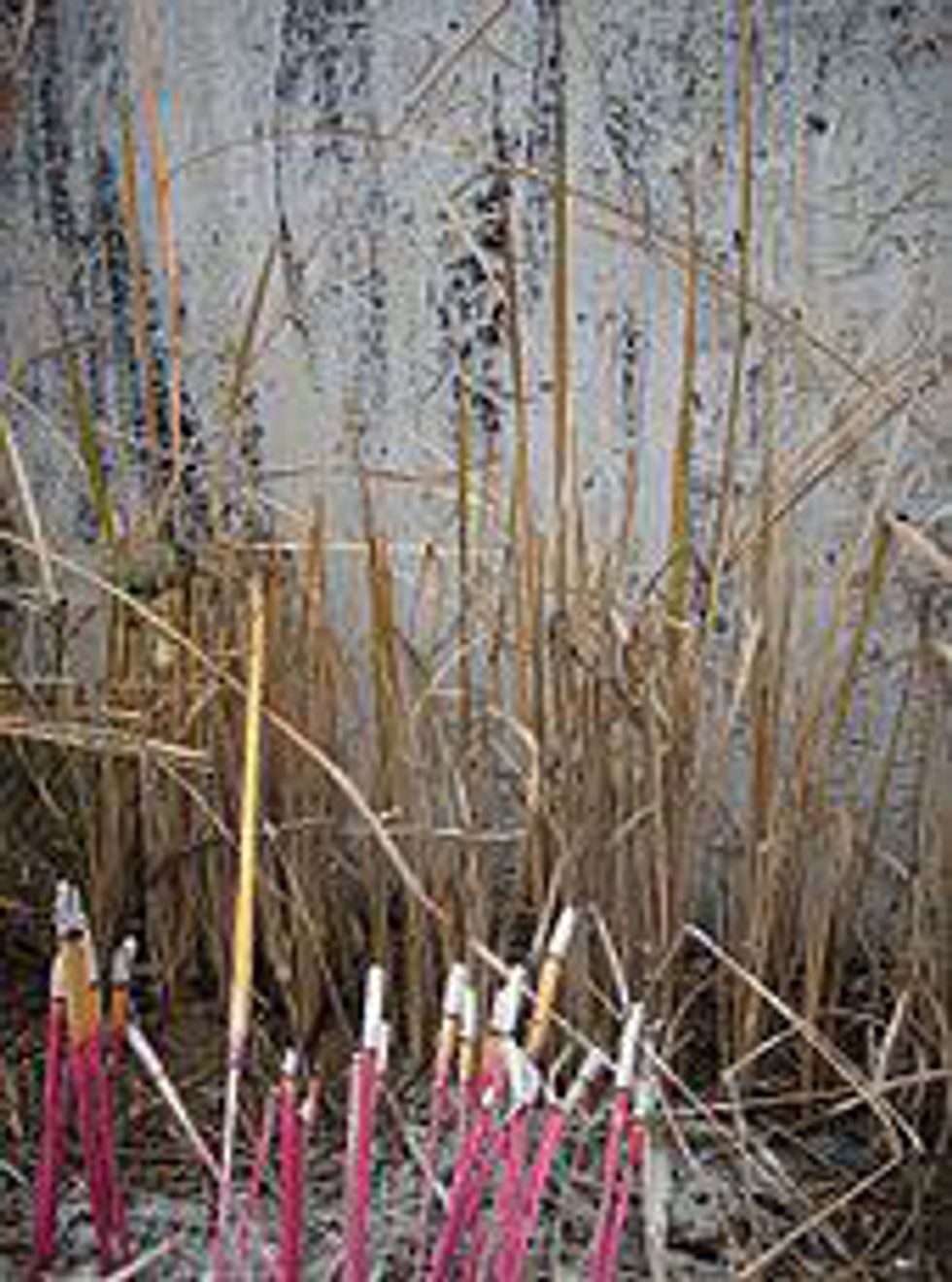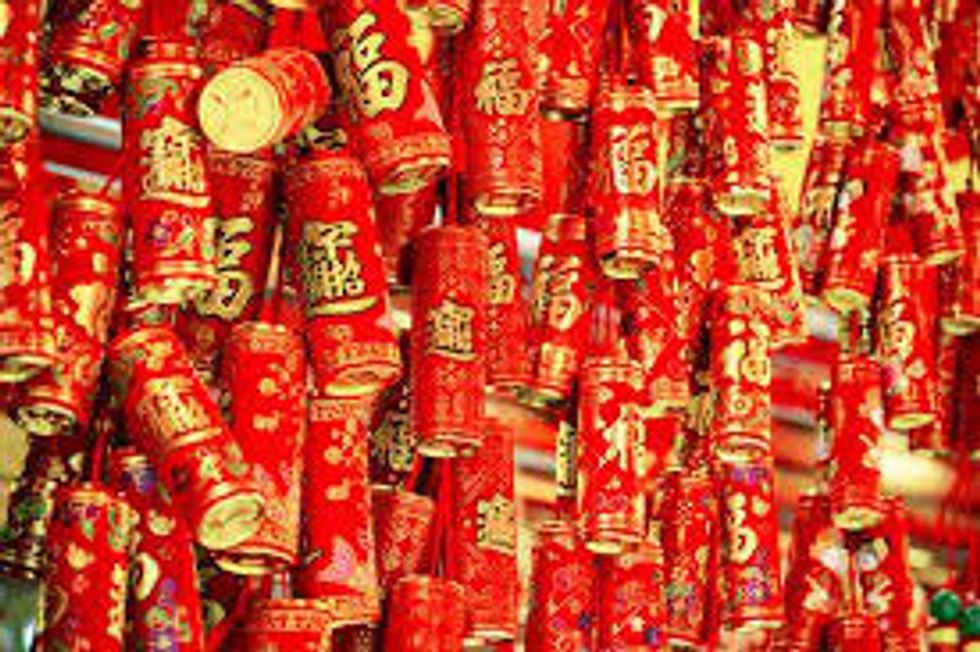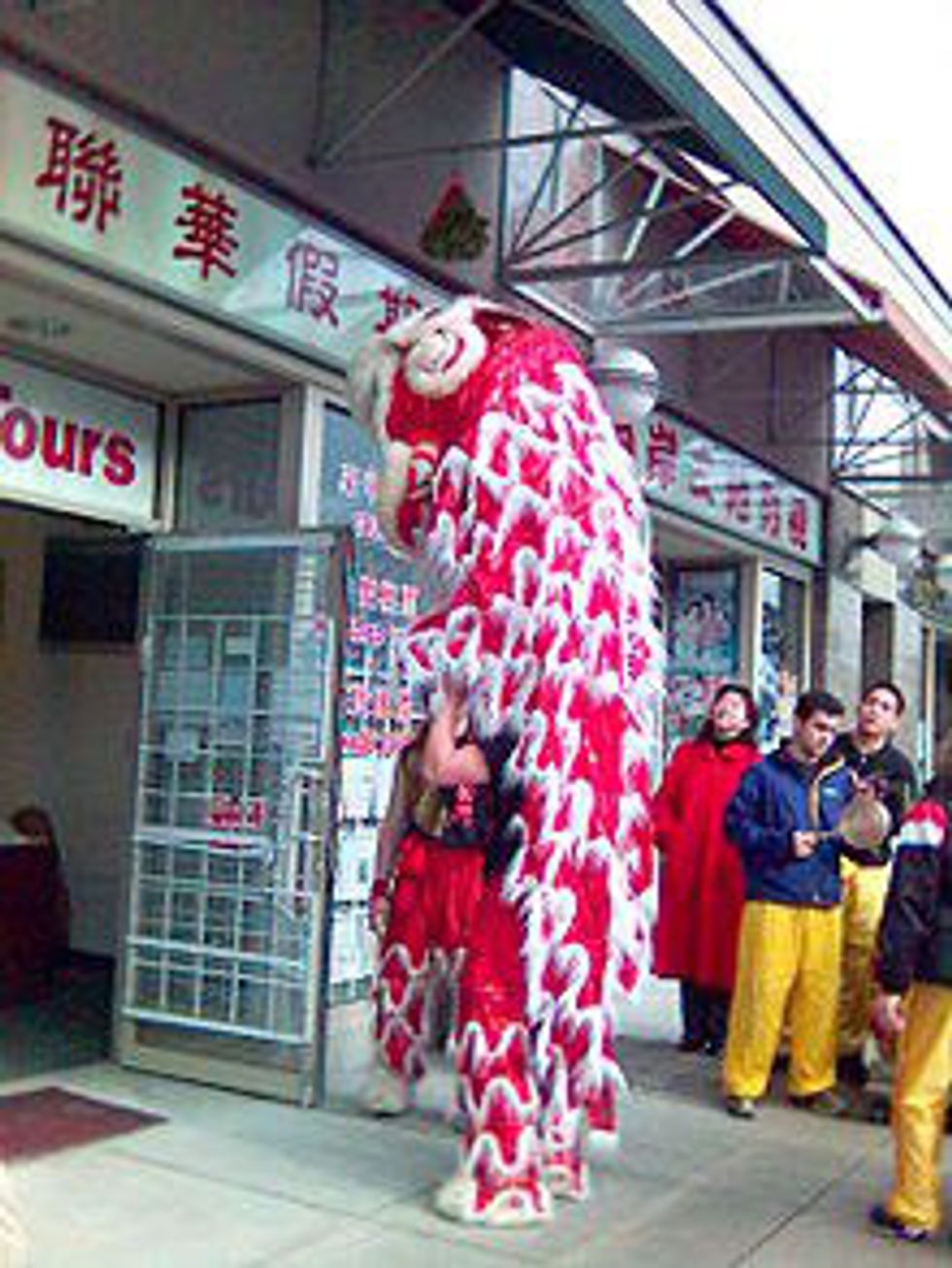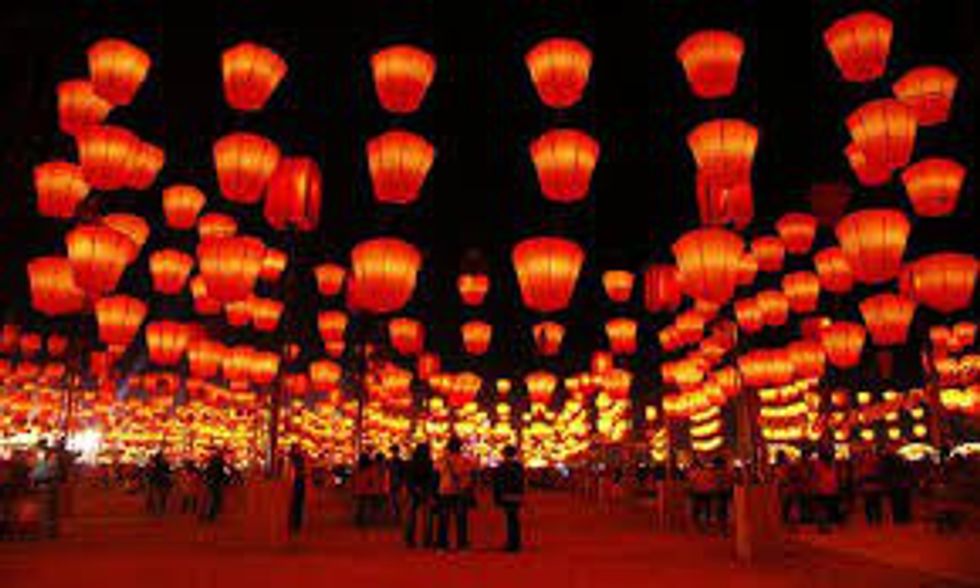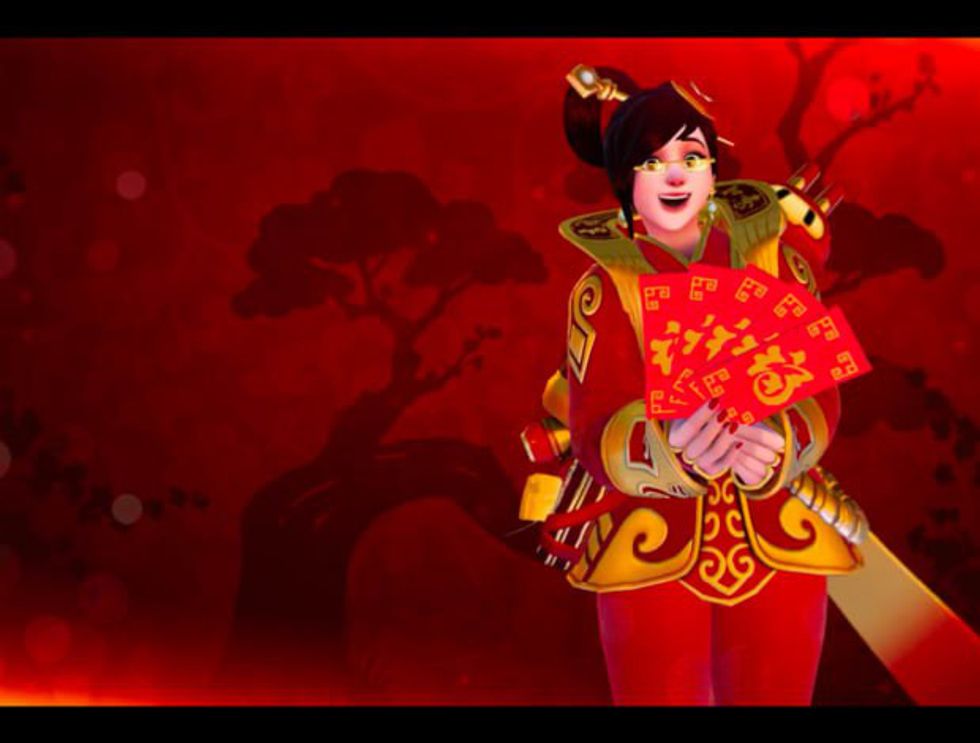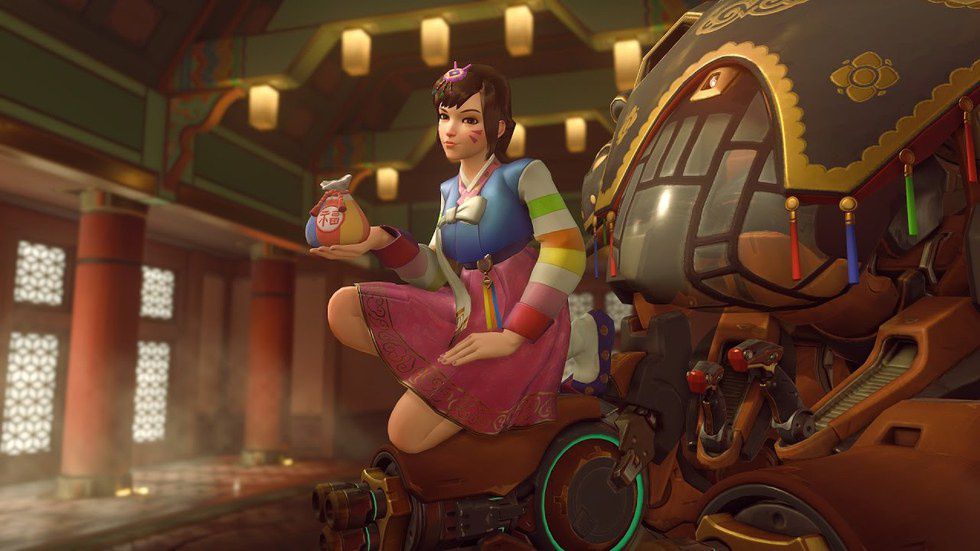Gong xi fa cai! Which means "wishing you prosperity" in Mandarin Chinese and you'll be hearing that a lot since this week celebrates the Lunar New Year! If you are already familiar with this custom then I bet you have tons of fun and you're having yourself, But if you aren't then I'll be happy to educate you about this wonderful event!
🎆Brief History🎆
The Lunar New Year is also known as the Chinese New Year and The Spring festival. This is an important Chinese festival celebrated at the turn of the traditional lunisolar Chinese calendar. The lunisolar Chinese calendar determines the date of Chinese New Year. The calendar is also used in countries that have been influenced by, or have relations with, China – such as Korea, Japan and Vietnam. Though occasionally the date celebrated may differ by one day or even one moon cycle due to using a meridian based on a different capital city in a different time zone or different placements of intercalary months.
Recommended for you
The traditional Chinese calendar follows a Metonic cycle (like the modern Jewish Calendar), and returns to the same date in Gregorian calendar roughly. The names of the Earthly Branches have no English counterparts and are not the Chinese translations of the animals. Alongside the 12-year cycle of the animal zodiac there is a 10-year cycle of heavenly stems. Each of the ten heavenly stems is associated with one of the five elements of Chinese astrology, namely: Wood, Fire, Earth, Metal, and Water. The elements are rotated every two years while a yin and yang association alternates every year. The elements are thus distinguished: Yang Wood, Yin Wood, Yang Fire, Yin Fire, etc. These produce a combined cycle that repeats every 60 years. For example, the year of the Yang Fire Rat occurred in 1936 and in 1996, 60 years apart.
Celebrations traditionally run from the evening preceding the first day, to the Lantern Festival on the 15th day of the first calendar month. The first day of the New Year falls on the new moon between 21 January and 20 February. In 2017, the first day of the Chinese New Year is on Saturday, 28 January, initiating the year of the Rooster.
This particular festival is centuries old believe it or not! Traditionally, the festival was a time to honor deities as well as ancestors and several myths.
Within China, regional customs and traditions concerning the celebration of the Chinese New Year vary widely. Often, the evening preceding Chinese New Year's Day is an occasion for Chinese families to gather for the annual reunion dinner. It is also traditional for every family to thoroughly cleanse the house, in order to sweep away any ill-fortune and to make way for good incoming luck. Windows and doors will be decorated with red color paper-cuts and couplets with popular themes of "good fortune" or "happiness", "wealth", and "longevity". Other activities include lighting firecrackers and giving money in red paper envelopes. Among about one third of the Mainland population, or 500 million Northerners, dumplings (especially those of vegetarian fillings) feature prominently in the meals celebrating the festival.
🎆The Festivities won't stop🎆
The Chinese New Year is celebrated not only in China but it's also celebrated in Mainland China,Hong Kong, Macau, Taiwan, Singapore, Indonesia, Malaysia, Thailand, Vietnam, Cambodia, Mauritius, Australia, and the Philippines. Chinese New Year is considered a major holiday for the Chinese and has had influence on the lunar new year celebrations world wide! The festival lasts for fifteen days, Boy doesn't that sound wonderful?! Here's a quick run-down on what happens on each day.
On the first day: The first day is for the welcoming of the deities of the heavens and earth, officially beginning at midnight. It is a traditional practice to light fireworks, burn bamboo sticks and firecrackers and to make as much of a din as possible to chase off the evil spirits as encapsulated by Nian.
Many people, especially Buddhists, decline eating any type of meat consumption on the first day because it is believed that this will ensure longevity for them. Some consider lighting fires and using knives to be bad luck on New Year's Day, so all food to be consumed is cooked the days before. On this day, it is considered bad luck to use the broom.
Most importantly, the first day of Chinese New Year is a time to honor one's elders and families visit the oldest and most senior members of their extended families, usually their parents, grandparents and great-grandparents.
Some families may invite a lion dance troupe as a symbolic ritual to usher in the Chinese New Year as well as to evict bad spirits from the premises. Members of the family who are married also give red envelopes containing cash known as lai see (Cantonese dialect) or angpow (Hokkien dialect/Fujian), or hongbao (Mandarin), a form of blessings and to suppress the aging and challenges associated with the coming year, to junior members of the family, mostly children and teenagers. Business managers also give bonuses through red packets to employees for good luck, smooth-sailing, good health and wealth.
Fireworks and firecrackers are traditionally very popular to have throughout this festival, it is a tradition that the indigenous peoples of the walled villages of New Territories, Hong Kong are permitted to light firecrackers and launch fireworks in a limited scale.
On the second day: The second day of the Chinese New Year, known as "beginning of the year" (simplified Chinese: 开年; traditional Chinese: 開年; pinyin: kāinián) was when married daughters visited their birth parents, relatives and close friends. (Traditionally, married daughters didn't have the opportunity to visit their birth families frequently.)
Back in the old day of the imperial era beggars and unemployed people were given rewards if they called out to household "Cai Shen dao!" [The God of Wealth has come!] and the householders would respond with "lucky money" and give them their prize. Business people of the Cantonese dialect group will hold a 'Hoi Nin' prayer to start their business on the 2nd day of Chinese New Year so they will be blessed with good luck and prosperity in their business for the year.
This day is believed to be The Birthday of Che Kung, a deity worshiped in Hong Kong, worshipers go to Che Kung Temples to pray for his blessing. A representative from the government asks Che Kung about the city's fortune through kau cim. Some believe that the second day is also the birthday of all dogs and remember them with special treats.
On the third day: The third day is known as "red mouth" (Chinese: 赤口; pinyin: Chìkǒu). Chikou is also called "Chigou's Day" (Chinese: 赤狗日; pinyin: Chìgǒurì). Chigou, literally "red dog", is an epithet of "the God of Blazing Wrath" (Chinese: 熛怒之神; pinyin: Biāo nù zhī shén).
Rural villagers continue the tradition of burning paper offerings over trash fires. It is considered an unlucky day to have guests or go visiting. Hakka villagers in rural Hong Kong in the 1960's called it "The Day of the Poor Devil" and believed everyone should stay at home.This is also considered a propitious day to visit the temple of the God of Wealth and have one's future told.
On the fourth day: The fourth day is when corporate "spring dinners" kick off and business returns to normal. The spring dinner usually consists healthy vegetables and shrimp and other various seafood. Other areas that have a longer Chinese New Year holiday will celebrate and welcome the gods in this day.
On the fifth and six day: The fifth day is known as the god of Wealth's birthday. In northern China, people eat jiaozi, or dumplings, on the morning of powu (Chinese: 破五; pinyin: pòwǔ). In Taiwan, businesses traditionally re-open on the next day (the sixth day), accompanied by firecrackers.
It is also common in China that on the 5th day people will shoot off firecrackers to get Guan Yu's attention, thus ensuring his favor and good fortune for the new year.
On the seventh day: This day is traditionally known as Renri (the common person's birthday), its also the day when everyone grows one year older. In some overseas Chinese communities in Southeast Asia, such as Malaysia and Singapore, it is also the day when tossed raw fish salad, yusheng, is eaten for continued wealth and prosperity.
For many Chinese Buddhists, this is another day to avoid meat, the seventh day commemorating the birth of Sakra, lord of the devas in Buddhist cosmology who is analogous to the Jade Emperor.
On the eighth day: The eighth day is another family dinner is held to celebrate the eve of the birth of the Jade Emperor, the ruler of heaven. People normally return to work by the eighth day, therefore the Store owners will host a lunch/dinner with their employees, thanking their employees for the work they have done for the whole year.
Approaching 12 midnight on this day, Hokkien people prepare for the "Jade Emperor ritual" (Hokkien: 拜天公 Pài Thiⁿ-kong) during which incense is burnt and food offerings made to the Jade Emperor and also to Zao Jun, the Kitchen god who reports on each family to the Jade Emperor. Some people will hold a ritual prayer after midnight on the eighth day. In Malaysia, especially, people light fireworks, often more than on the first day. This practice of Bai Ti Gong can also be seen in Singapore.
At midnight of the eighth day of the new year, Hokkiens will offer thanks to the Emperor of Heaven. A prominent requisite offering is sugarcane. Legend holds that the Hokkien were spared from a massacre by Japanese pirates by hiding in a sugarcane plantation during the eighth and ninth days of the Chinese New Year, coinciding with the Jade Emperor's birthday.
Since "sugarcane" (Hokkien: 甘蔗 kam-chià) is a near homonym to "thank you" (Hokkien: 感谢 kám-siā) in the Hokkien dialect, Hokkiens offer sugarcane on the eve of his birthday, symbolic of their gratitude.
On the ninth day: The ninth day is focused to offer prayers to the Jade Emperor of Heaven in the Daoist Pantheon. It's traditionally it's also celebrated as the birthday of the Jade Emperor. This day, called Ti Kong Dan (Hokkien: 天公诞 Thiⁿ-kong Tan), Ti Kong Si (Hokkien: 天公生 Thiⁿ-kong Siⁿ) or Pai Ti Kong (Hokkien: 拜天公 Pài Thiⁿ-kong), is especially important to Hokkiens, even more important than the first day of the Chinese New Year.
In the morning of this birthday (traditionally anytime from midnight to 7 am), Taiwanese households set up an altar table with 3 layers: one top (containing offertories of six vegetables (Chinese: 六斋; pinyin: liù zhāi), noodles, fruits, cakes, tangyuan, vegetable bowls, and unripe betel, all decorated with paper lanterns) and two lower levels (containing the five sacrifices and wines) to honor the deities below the Jade Emperor.
The household then kneels three times and kowtows nine times to pay obeisance and wish him a long life. Incense, tea, fruit, vegetarian food or roast pig, and gold paper is served as a customary protocol for paying respect to an honored person.
On the tenth eleventh and twelfth day: The Jade Emperor's party is celebrated on this day. The eleventh and twelfth day are used as a free day, perhaps to paperer for the other remaining days of the Chinese New Year.
On the thirteenth and fourteenth day: People will eat pure vegetarian food on this day, as a way to clean out their stomachsdue to consuming too much food over the preceding two weeks.
This day is dedicated to the General Guan Yu, also known as the Chinese God of War. Guan Yu was born in the Han dynasty and is considered the greatest general in Chinese history. He represents loyalty, strength, truth, and justice. According to history, he was tricked by the enemy and was beheaded. Almost every organization and business in China will pray to Guan Yu on this day.
Before his life ended, Guan Yu had won over one hundred battles and that is a goal that all businesses in China want to accomplish. In a way, people look at him as the God of Wealth or the God of Success. The fourteenth day is also used as a free day.
On the fifteenth day: The last day is known as "Yuanxiao Festival" (simplified Chinese: 元宵节; traditional Chinese: 元宵節; pinyin: Yuán xiāo jié), also known as "Shangyuan Festival" (simplified Chinese: 上元节; traditional Chinese: 上元節; pinyin: Shàng yuán jié) or the Lantern Festival (otherwise known as Chap Goh Mei Chinese: 十五暝; pinyin: Shíwǔmíng; literally: "the fifteen night" in Fujian dialect). Rice dumplings tangyuan (simplified Chinese: 汤圆; traditional Chinese: 湯圓; pinyin: tang yuán), a sweet glutinous rice ball brewed in a soup, are eaten this day. Candles are lit outside houses as a way to guide wayward spirits home. This day is celebrated as the Lantern Festival, and families walk the street carrying lighted lanterns.
In China, Malaysia and Singapore, this day is celebrated by individuals seeking for a romantic partner, akin to Valentine's Day. Normally, single women would write their contact number on mandarin oranges and throw it in a river or a lake while single men would collect them and eat the oranges. The taste is an indication of their possible love: sweet represents a good fate while sour represents a bad fate. That sounds pretty romantic to me!
🎆Media Spreading the word🎆
There are actually a few things on the internet that has gotten into the festival's spirit, here's a small list
This message form Elise Zhang (The voice actress of Mei from Overwatch)
This message from Charlet Chung (The voice actress of D.va from Overwatch)
Disney's Lunar New Year Parade
Disney's Emjoi Blitz Lunar New Year Event
Well I hope this helps you get into the spirit! Happy Chinse New Year! Gong xi fa cai!





